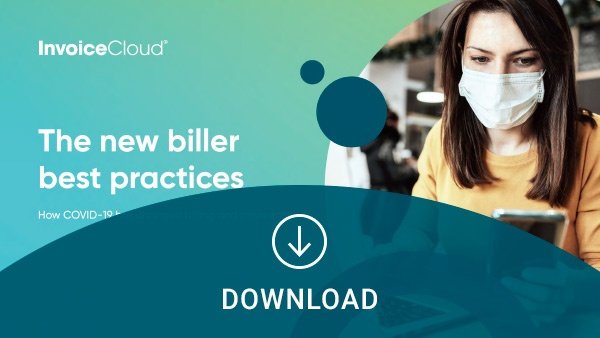GFOA Recap: What are Finance Officers Focused on for 2022?
 Tessa Newell
Tessa Newell

The Government Finance Officer’s Association (GFOA) held their 2021 virtual conference last week. If you weren’t able to make it, we’ve got you covered. We’re recapping the conference’s most important sessions — from cybersecurity to software as a service (SaaS) technologies — and highlight what the top finance officers around the country are focusing on for the second half of 2021 and into 2022.
Session: “We’ve Always Done it This Way: How COVID Forced Governments to Overcome Resistance to Change”
COVID-19 has changed the way a lot of things work, and local government and utilities are no exception. Particularly over the past year and a half, the pandemic affected utility sales volumes. In this session, Deputy Chief Financial Officer for the San Francisco Public Utilities Commission, Charles Perl discussed dealing with financial resiliency. More specifically, about creating internal teams to manage financial crises caused by the global pandemic.
The audience was polled to understand how other organizations handled finances during the pandemic and found that:
- 62% of government attendees said their organization did create an internal crisis team.
- Increased costs associated with COVID-19 was the biggest financial challenge for government officials.
- Almost all of the attendees’ biggest organizational challenge from COVID-19 was the health of their staff and their technology needs.
- According to 54% of government attendees, the biggest barrier for change is “obtaining buy-in from staff.”
Session: “Emerging Technology in Local Government”
This session, hosted by executives from a number of companies including IBM, Oracle, Munera, Inc., and Rubicon, focused on emerging technology in local government. Another thing COVID-19 has accelerated is the rate of technological adoption, and as technologies like online chat boxes and Artificial Intelligence (AI) become increasingly popular, government executives are betting heavily on technology to help them reach their organizational objectives.
However, people are still hesitant to adopt certain technologies for a number of reasons including:
- Lack of skills
- Internal resistance to change
- Blind spots in strategy
- Lack of internal expertise to implement these technologies
In fact, the live polling session showed that a majority of government executives are NOT using Cloud software to manage public works functions.
So, how can organizations work to overcome these challenges? The panelists had a number of suggestions including:
- Start small with pilots of different technologies
- Bridge the skills gap with trainings
- Utilize sponsorships to reset the resistance to change
- Prioritize risk and compliance areas as early movers
- Combine operational and financial metrics into new reporting and analytics-driven insights
- Document and publicize the impact of the technology
Regardless of their reasons for hesitation, it’s essential for government leaders to invest in innovative technologies to remain sustainable, especially in the midst of health and environmental crises. For example, the COVID-19 pandemic has forced us to work remotely, go paperless, and more — all of which wouldn’t be possible without adapting the required technology.
Session: Public Sector Cybersecurity Update
The third session, led by Phil Bertolini, Vice President of the Center for Digital Government (CDG), focused on cybersecurity in the public sector. Unfortunately, cybercrime has skyrocketed during the pandemic, and cybersecurity quickly became a top concern. In fact, according to a survey by CDG, more than 57% of governments are now providing annual cybersecurity training for their organizations. However, CDG data also shows a majority of states, counties, and cities feel they need even more cybersecurity after 2020.
While most agree that cybersecurity is (and should be) a top priority, actually purchasing and implementing cybersecurity solutions is where governments fall flat. Data from CDG also shows that while a priority, most governments have limited IT budget to spend on cybersecurity with:
- 1-5% of budget is spent on cybersecurity for
- 59% of states
- 56% of cities
- 55% of counties
- 6-10% of budget is spent of cybersecurity for
- 12% of states
- 33% of cities
- 34% of counties
This data proves that finance officers need to change their mindset when it comes to cybersecurity. Hackers tend to seek out the most vulnerable, so it’s crucial for governments to be leaders in cybersecurity. While the level of concern regarding cybersecurity was previously based on proximity to other attacks, the reality is that cyberattacks have become their own pandemic — they’re widespread and can happen to anyone, anywhere, at any time.
Recent major cyberattacks at large organizations like SolarWinds and the Washington D.C. Police Department paint a picture of just how uncontrollable these attacks can be. This was a lesson learned for the U.S. Office of Personnel Management (OPM) who was the target of a massive data breach in 2015.
Jim St. Clair, Chief Trust Officer at Lumedic, believes the breach at OPM is evidence that these attacks can truly happen to anyone. “If you or someone from your team is wondering ‘am I important enough to be hacked?’ — you are,” says St. Clair.
So how can local governments protect themselves in the future? Teaching your organization to be skeptical and self-phish through awareness trainings is crucial, as is keeping up-to-date with the current threat intel through peer groups, forums, or resource groups.
It’s clear that the repercussions of COVID-19 are still on the minds of local government leaders as we move into the back half of 2021 — and we have just the resource for these new priorities.
To learn more about how the pandemic has affected billing and payments, get your free copy of our ebook, The New Biller Best Practices: How COVID-19 has changed billing and payments, below.



